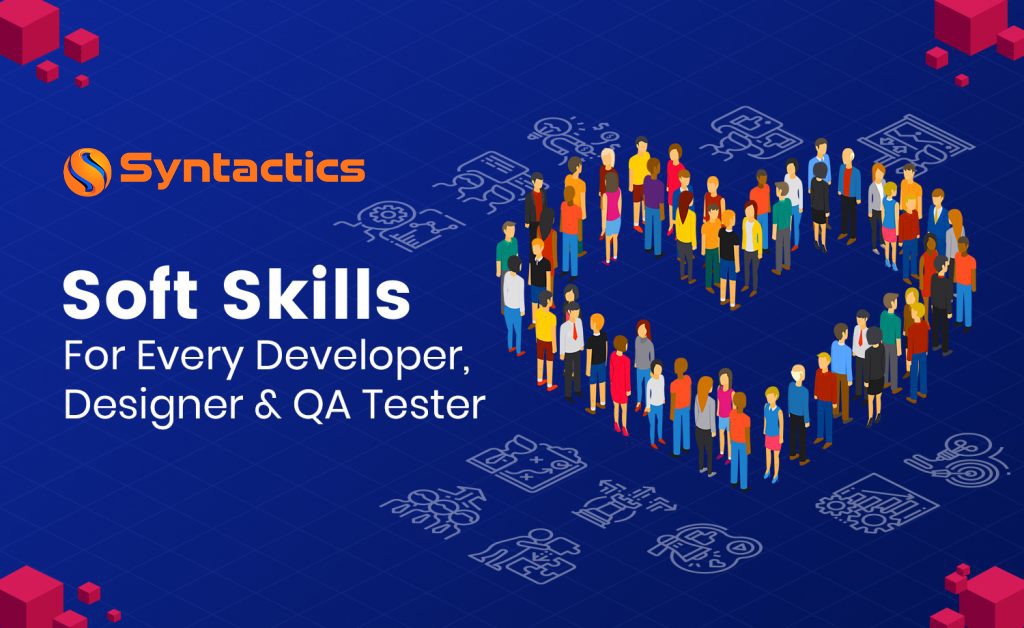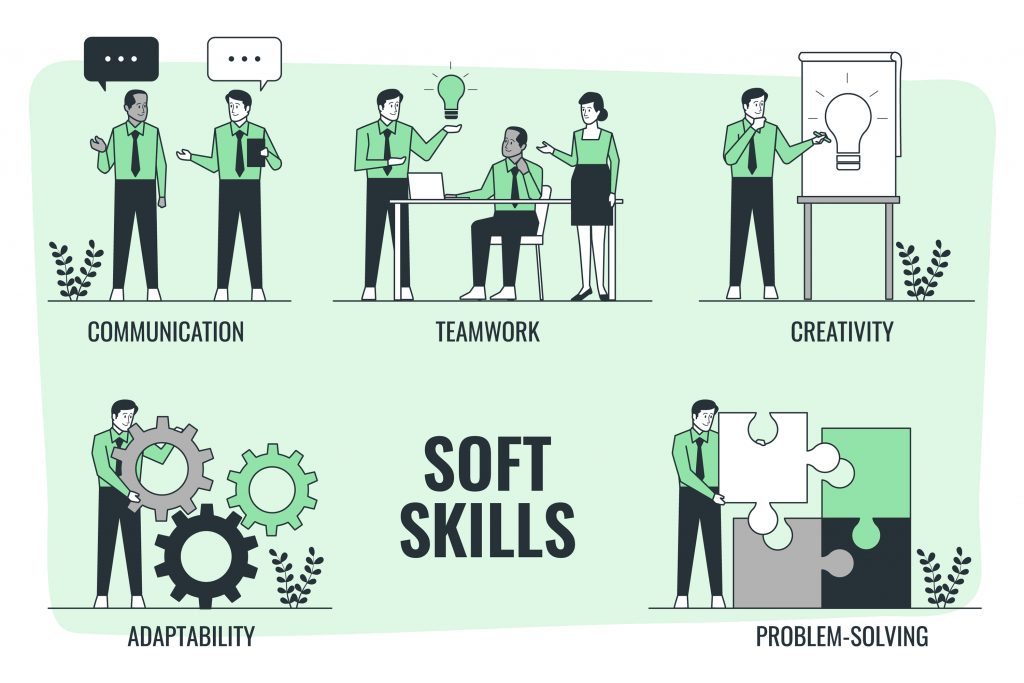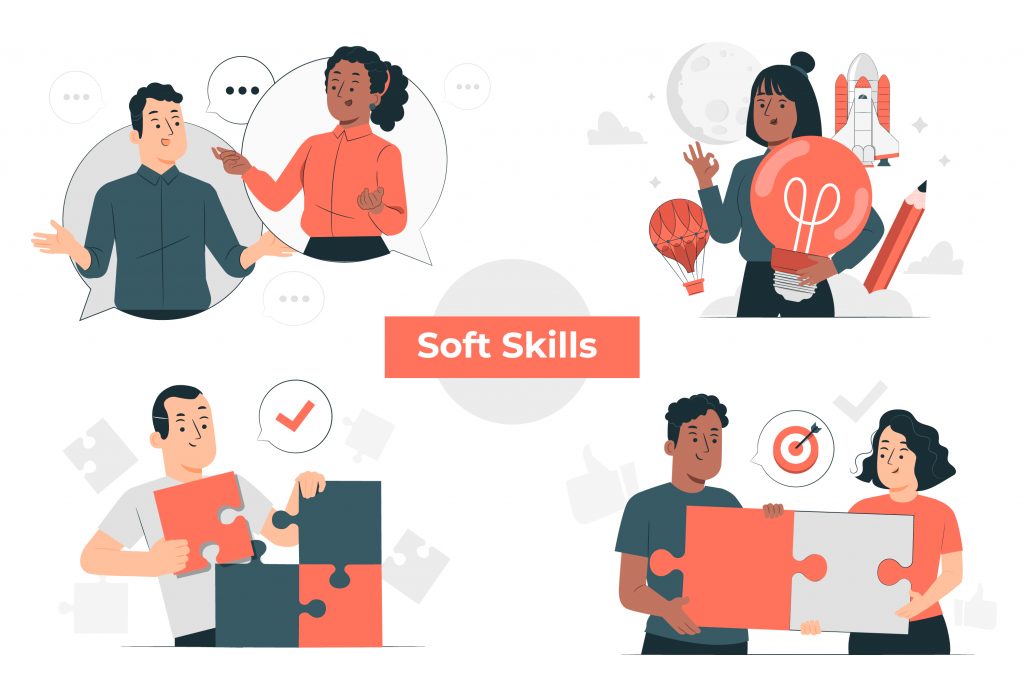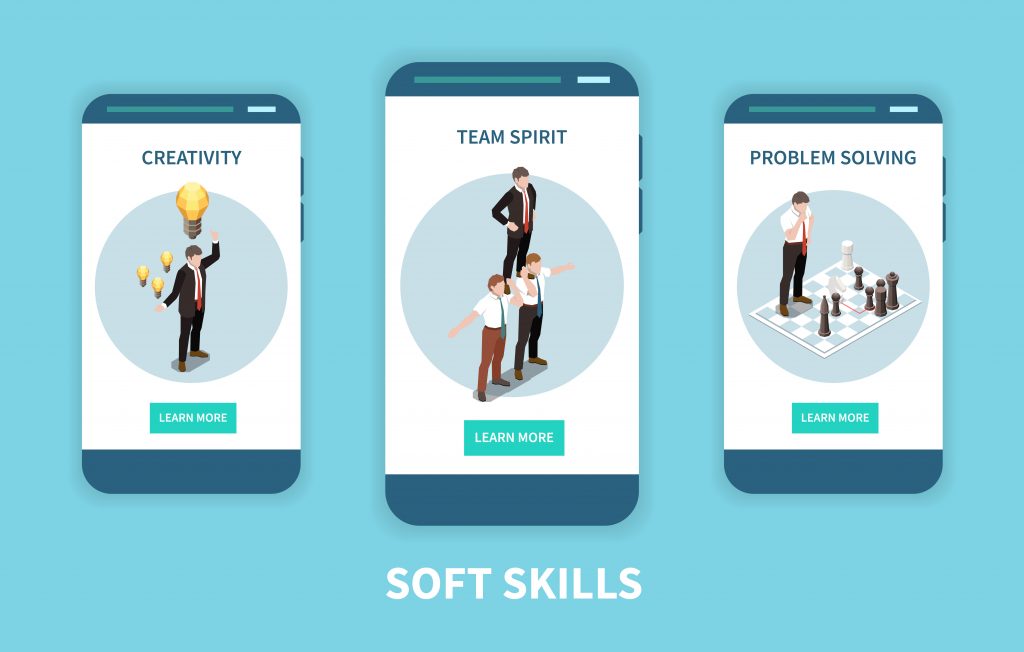
Soft Skills for Every Developer, Designer and QA Tester
Most often, companies hire people for their technical capabilities and hard skills. They acquire these skills through education, certifications, on-the-job training, and special training programs. As such, companies can easily define and measure their competence. For instance, an IT professional’s hard skills may include being able to work with different computer programming languages. They may even be experts at web designing. On the other hand, companies should also consider people for their soft skills or people skills. Now, some would immediately associate it with communication skills. However, soft skills actually cover beyond just effective communication, both verbal and nonverbal, and the art of listening. Discover the soft skills for developers, designers, and QA testers.

Image Source: Freepik
Soft Skills are Equally Important to IT Hard Skills
Now, let us discuss why IT companies should also consider soft skills for developers, dedicated designers, and QA testers. Today, executives consider soft skills as significant in fostering employee retention. These skills are also essential in building a meaningful workplace culture. Soft skills even help improve leadership. In fact, most companies consider soft skills as a critical priority when hiring.
Finances Online also listed down the top career trends that will matter most in 2022, which include:
Creativity
Your company needs innovative people who can develop fresh solutions to common everyday issues, which others may have overlooked. If you have employees with people skills like that, you can create strategies to tackle difficult scenarios and overcome challenges.
Persuasion
Persuasion is an art of communication that is rare but your staff can learn. It goes beyond effective communication. More importantly, it allows a speaker to change his or her audience’s attitude or behavior toward a particular idea or object. You can use either written or spoken words and visual tools to persuade people.
Collaboration
When you hear the word collaboration, you may think of other words like teamwork and blending well with people. Today, working well with others is a key factor for business success. Forbes reports that effective collaboration is essential to increase employee engagement. As such, if people work together, they can accomplish more.
Adaptability
People who are adaptable are more likely to be your best hire. HR managers always look for candidates who can grow and and assume bigger responsibilities as the company innovates and evolves. Therefore, it is considered a hard-to-find people skill. Employees who are not as adaptable to situations have a higher chance of leaving your company. As a result, you could suffer costs related to missed opportunities and potential incomes. You will also have to spend for training and looking for replacements.
Time Management
Effectively managing your tasks in the shortest time possible allows employees more room for business productivity and personal time. Prioritization also falls under this skill that shows how employees cope up with a lot of things under his or her plate. So, if you are looking to hire new staff, you need to look for those with this type of people skill.
Leadership
A leader displays a sense of accountability, responsibility, and ownership in the respective function and role that they play. In addition, a leader can outperform competition and drive change essential to business success. With that, each company should expect every employee to be leaders in their own circle of influence. Therefore, most consider leadership as the most important among the people skills.
Culture Fit
You can expect employees that display the people skill of culture fit to have greater job satisfaction and heightened job performance. If a candidate will easily mesh with the company culture, this means that they are more likely to stay longer in the organization.
Overall, we know that these soft skills or people skills are pretty much harder to define and evaluate. However, human resource specialists can strategically ask questions that can provide hints if the necessary soft skills are present.

Image Source: Freepik
Practical Ways to Develop Soft Skills in QA Testers, Developers, and Designers
So, how can we develop our soft skills? You can begin honing your soft skills in the workplace with these principles:
- show empathy
- listen and respond
- be patient
- display helpfulness
- be approachable
- have an open mind
- solve problems together
- be creative, not repetitive
- have a strategy for everything
- be accountable and own your role
- manage tasks and resources
In addition, here are related things that you can keep in mind to help develop soft skills:
- Know when and how to ask the right questions to your teammates, employers, and clients.
- Keep your focus on what the business stakeholders care about.
- Consistently improve on how to play well with others—the start is always the hardest.
- Learn how to deal with conflict. It will not always be a smooth-sailing ride.
- Set time to forget about your tech gadgets and converse with your teammates.
- It’s not always about tasks to do but with whom you are doing them with.

Image Source: Freepik
Transformation from Inside Out
As a recommendation, you should not only focus on the capability of your employees. I’m sure their technical skills are excellent. However, hard skills alone will not be enough to push careers forward. So, remember that interpersonal skills are equally as important, if not more, especially in a workplace filled with people.
In this digital era, technology has everyone’s attention almost all of the time. Therefore, these soft skills for QA testers, developers, and designers become more significant and relevant to practice today. Let us not forget to remind everyone to connect with other people, too.
So, are you looking for these soft skills in developers, designers, and QA testers? You can find them in a web design and development company in the Philippines!














Comment 0